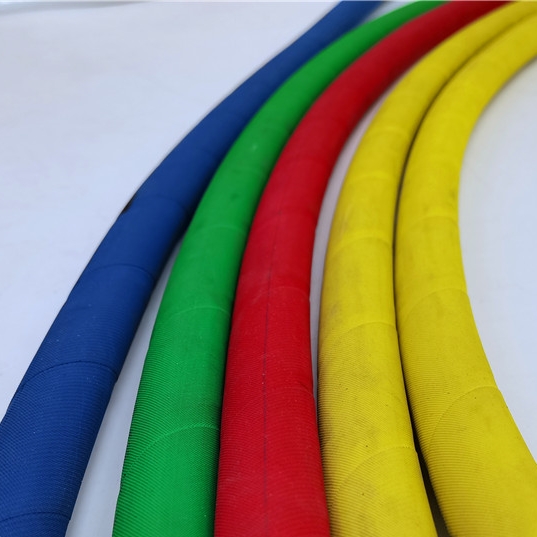335345435
Aug . 21, 2024 07:31 Back to list
Supplier for EN853 2SN Hydraulic Hose Solutions and Applications
Understanding EN 853 2SN Standards and Choosing the Right Supplier
When it comes to hydraulic hoses, the EN 853 2SN standard is one of the most recognized benchmarks in the industry. This standard specifies the requirements for the production of wire-braided hoses that are intended for use in hydraulic systems. Understanding the significance of EN 853 2SN and selecting the right supplier can significantly impact the efficiency and safety of hydraulic systems in various applications.
What is EN 853 2SN?
The EN 853 2SN standard covers rubber hydraulic hoses and specifies the construction requirements for two-wire braided hoses. The 2 in the name indicates there are two layers of braided steel wire reinforcement, providing the hose with enhanced strength and pressure resistance. The SN denotes the type of the hose, which is designed for high-pressure applications.
Hydraulic hoses that meet the EN 853 2SN standard are widely used in industries, including construction, agriculture, manufacturing, and automotive. They are capable of handling fluids at high pressures, which is essential for the effective operation of hydraulic machinery and equipment.
Applications of EN 853 2SN Hoses
EN 853 2SN hoses find applications in various sectors due to their robustness and reliability. These hoses are commonly used in
1. Construction Machinery Such as excavators and loaders where hydraulic systems are integral to their operation. 2. Agricultural Equipment Tractors and harvesters that utilize hydraulic systems for various functions, including steering and lifting. 3. Industrial Machinery Production lines and equipment that require hydraulic power to operate effectively. 4. Automotive Applications Braking systems and power steering, where high-pressure hoses are essential for safety and performance.
Choosing the Right Supplier
en853 2sn supplier

Selecting a reliable supplier for EN 853 2SN hoses is crucial for ensuring quality and performance in hydraulic applications. Here are several factors to consider when choosing a supplier
1. Quality and Certification Ensure that the supplier's products meet the EN 853 2SN standards and are certified. This guarantees that the hoses have been tested for strength, durability, and safety, providing peace of mind in their application.
2. Experience and Reputation Look for suppliers with a proven track record in the industry. Established suppliers often have better knowledge of the specific needs associated with different applications and can offer valuable insights and recommendations.
3. Product Range A good supplier should offer a wide range of hydraulic hoses and fittings to suit various applications. This not only simplifies the procurement process but also ensures you can find the right components for your specific needs.
4. Customer Support Reliable customer service is a must. A responsive supplier can assist with technical queries, help with product selection, and offer after-sales support, which can be crucial during installation or if issues arise.
5. Pricing and Delivery While quality should be a priority, cost-effectiveness is also important. Compare prices from different suppliers, but ensure it doesn’t come at the expense of quality. Additionally, check the supplier's delivery timelines to ensure they can meet your project schedules.
Conclusion
The EN 853 2SN standard plays a vital role in ensuring the safety and reliability of hydraulic systems across various industries. Choosing the right supplier for these hoses is just as important. By prioritizing quality, experience, product range, customer support, and competitive pricing, businesses can ensure they are well-equipped with the best hydraulic solutions for their needs. Always remember that the performance of hydraulic machinery largely depends on the quality of the components used, making this an essential consideration in operational success.
-
SAE 100 R17 Black Smooth Cover Hydraulic Hose
NewsMar.07,2025
-
SAE 100 R17 Black Smooth Cover Hydraulic Hose
NewsMar.07,2025
-
SAE 100 R17 Black Smooth Cover Hydraulic Hose
NewsMar.07,2025
-
SAE 100 R17 Black Smooth Cover Hydraulic Hose
NewsMar.07,2025
-
SAE 100 R17 Black Smooth Cover Hydraulic Hose
NewsMar.07,2025
-
steel wire braided hydraulic hose
NewsMar.07,2025



